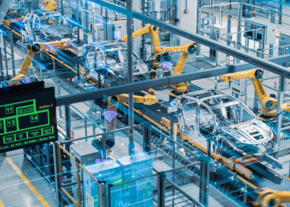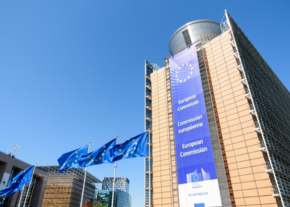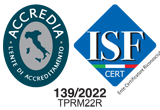
The four rules for the digital market
Editorial Staff
According to Francesco Morace, professor of social innovation at the Polytechnic University of Milan, social and cultural changes have produced new “paradigms for the future”. Video
It makes increasingly less sense to talk about online life vs offline life, the digital world against the real world. "Nowadays we must talk about Onlife since everything is connected. We are not experiencing a change but a real metamorphosis", explains sociologist Francesco Morace, professor of social innovation at the Polytechnic University of Milano, author of over 20 essays, consultant for companies and institutions and president of Future Concept Lab." This is not an era of change but a change of era", he adds, before identifying what from his point of view are the irreversible paradigms of the future, which will inevitably affect the mobility sector and its aftermarket.
As expected, the first paradigm is time, explains Morace, as it is popular opinion that everything is faster with digitization. "However, we must be able to reconcile timing with quality, with depth - he warns -. Innovation needs thinking and deep analysis. It is far too easy to be caught in this speeding up process, but we cannot afford to be confused by this faster and faster at all costs scenario". Italy can definitely play an important role in this game as we know how to speak the language of "depth and quality": that is why exports have always been a mainstay of our National economy. Thus, the first paradigm identified by the sociologist is "quick & deep", speed and quality. "It is necessary to be simple but not simplistic, and effective - underlines Morace – we must understand complexities and find easy, user –friendly solutions".
The second paradigm can be defined as "trust & sharing". "Without a sharing dimension, at the heart of which there is trust, not much would be achieved; yes besides sharing we need trust", says Morace, a pillar of the "reputation economy" established not only on economic exchanges but on reputation built over time. Take for example a house-sharing platform where I will be rated by the tenant and I will rate the tenant in return". "We must be willing to accept the idea that we are judged, every day, for what we do," says Morace. An even more important concept for today's young people, for whom car ownership is no longer the dream it once was for their fathers. But will cars still represent a value for our young ones? "Some generations and specific groups will continue to consider it as valuable, yet currently, cars are, among private goods, what marks the greatest gap between generations. Today's 20-year-old - he continues - no longer feels the need to own a car, they are content with having access to one".
The third paradigm, "unique & universal", refers to uniqueness in global terms. “Take the idea of globalization, as we have always known, and reverse it. Global thinking is an American scam, what is actually happening is exactly the opposite”. Think for a moment at the uniqueness of food, of typical products, which can become universal, providing a measure of satisfaction to people in other countries and cultures "people who recognize and appreciate the extraordinary value of Italian products and style". "It means to keep thinking locally - explains Morace - but to understand also that this thinking must be open to the world and become universal".
The fourth paradigm is sustainability, "crucial & sustainable". Take for example, the use of disused telephone booths in Colombia to create the "PayPhone Bank" system, thanks to which poor people can deposit the few pennies earned on an account by phone. "An innovation that affects millions of people, not just an elite. No room for ideology here: sustainability is one of the key factors for the future", concludes Morace.
For english subtitles use the Youtube settings
As expected, the first paradigm is time, explains Morace, as it is popular opinion that everything is faster with digitization. "However, we must be able to reconcile timing with quality, with depth - he warns -. Innovation needs thinking and deep analysis. It is far too easy to be caught in this speeding up process, but we cannot afford to be confused by this faster and faster at all costs scenario". Italy can definitely play an important role in this game as we know how to speak the language of "depth and quality": that is why exports have always been a mainstay of our National economy. Thus, the first paradigm identified by the sociologist is "quick & deep", speed and quality. "It is necessary to be simple but not simplistic, and effective - underlines Morace – we must understand complexities and find easy, user –friendly solutions".
The second paradigm can be defined as "trust & sharing". "Without a sharing dimension, at the heart of which there is trust, not much would be achieved; yes besides sharing we need trust", says Morace, a pillar of the "reputation economy" established not only on economic exchanges but on reputation built over time. Take for example a house-sharing platform where I will be rated by the tenant and I will rate the tenant in return". "We must be willing to accept the idea that we are judged, every day, for what we do," says Morace. An even more important concept for today's young people, for whom car ownership is no longer the dream it once was for their fathers. But will cars still represent a value for our young ones? "Some generations and specific groups will continue to consider it as valuable, yet currently, cars are, among private goods, what marks the greatest gap between generations. Today's 20-year-old - he continues - no longer feels the need to own a car, they are content with having access to one".
The third paradigm, "unique & universal", refers to uniqueness in global terms. “Take the idea of globalization, as we have always known, and reverse it. Global thinking is an American scam, what is actually happening is exactly the opposite”. Think for a moment at the uniqueness of food, of typical products, which can become universal, providing a measure of satisfaction to people in other countries and cultures "people who recognize and appreciate the extraordinary value of Italian products and style". "It means to keep thinking locally - explains Morace - but to understand also that this thinking must be open to the world and become universal".
The fourth paradigm is sustainability, "crucial & sustainable". Take for example, the use of disused telephone booths in Colombia to create the "PayPhone Bank" system, thanks to which poor people can deposit the few pennies earned on an account by phone. "An innovation that affects millions of people, not just an elite. No room for ideology here: sustainability is one of the key factors for the future", concludes Morace.
Video
For english subtitles use the Youtube settings
On the same topic
#Aftermarket digitization: a two-speed process#Aftermarket, five online marketing strategies#Online spare parts sales: e-commerce a new (profitable) opportunity for the aftermarket




























